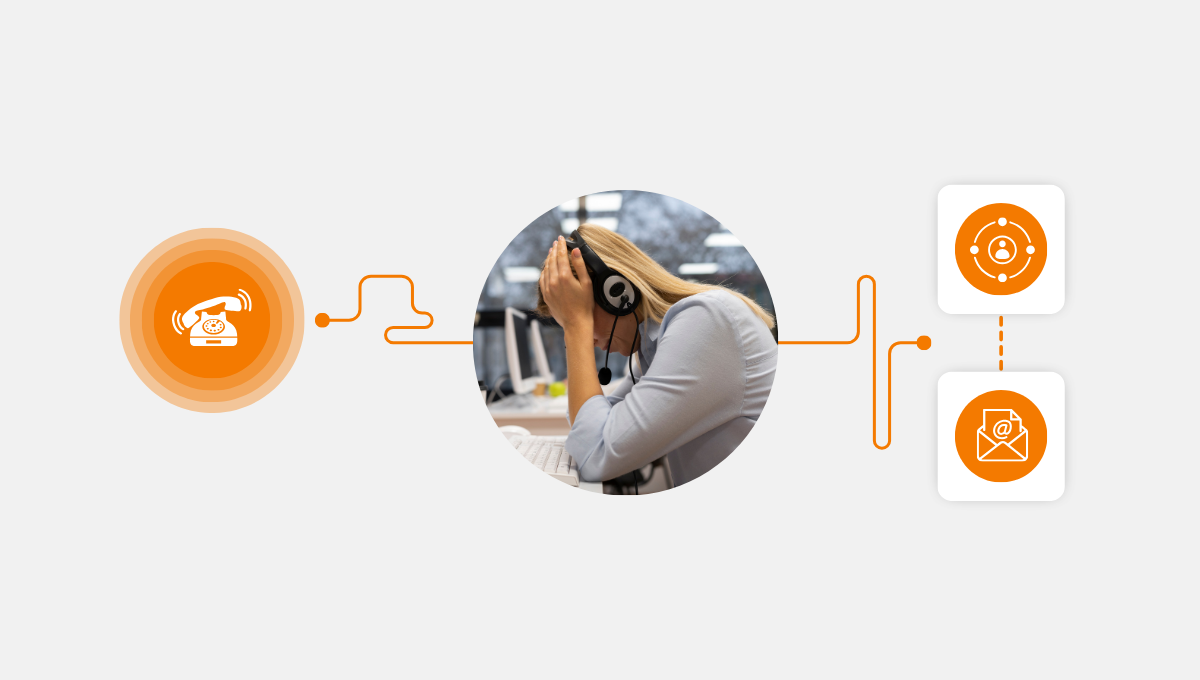Are you familiar with the term “VoIP”, but aren’t sure what it means? VoIP stands for Voice over Internet Protocol and is a communication technology. We’ll show you how these phone systems work, their benefits, and more in this blog post.
Let’s get to know this technology in more detail.
What is a VoIP phone?
VoIP phone is a type of telephone that uses the internet to make and receive calls instead of landlines. This allows users to make and receive high-quality calls with sound clarity and minimal latency at a lower cost.
Many VoIP services offer additional features such as:
- Call forwarding,
- Caller ID,
- Message storage,
- And call transfer.

How does a VoIP phone system work?
Say goodbye to on-premise PBX (Private Branch Exchange) systems with their bulky machines that could only provide limited telephone service options.
VoIP phone system uses the internet for voice and multimedia communications. VoIP phones make calls over the internet instead of using traditional telephone lines.
As a result, users are able to make calls over Wi-Fi networks, cloud-based systems, cellular connections, or any other internet connection across locations, reducing telecom costs.
With VoIP phones, companies can communicate quickly and securely.
Why do businesses use VoIP?
VoIP has many benefits for businesses. It is significantly more cost-efficient than traditional phone services.
And it also;
- Provides a great deal of flexibility and
- Allows you to customise the system to your particular business needs.
This can range from routing critical calls directly through to the relevant personnel to integrating voice and data systems within a company.
As well as being quick, easy, and cost-effective to deploy, VoIP systems do not require expensive maintenance. Given these advantages, it’s easy to see why businesses are increasingly turning to VoIP technology for their communications needs.
Let’s make it clearer.
VoIP advantages – benefits of using VoIP
- Cost savings: VoIP eliminates the need for a traditional phone line by transmitting voice calls over the internet. This can lead to significant savings on your monthly phone bill.
- Increased productivity: VoIP features such as voicemail, call waiting, and caller ID can make it easier for employees to stay connected with each other and make communication easier. Also, VoIP systems often come with an online control panel that makes it easy to manage settings and make changes.
- Flexibility: VoIP systems can be scaled up or down to meet changing business needs. Moreover, VoIP systems can be used with desk phones, laptops, and smartphones. So, you can implement a VoIP system tailored to your needs.
- Improved customer service: Businesses can ensure that every customer receives the best possible service with call recordings and automatic call distribution. Often, VoIP systems include CRM integration, making it easier to track customer interactions.

VoIP disadvantages
VoIP is a convenient way to make voice calls over the internet. VoIP technology has many advantages, but some disadvantages can be prohibitive for some users.
These drawbacks include the following:
- The need for reliable internet connection speeds in order to make and maintain good-quality calls,
- Security risks associated with routing data and calls through the public internet,
- And inefficient data handling at network points between users.
VoIP phone system requirements
In order to function effectively VoIP (Voice over Internet Protocol) phone systems require a few key components. Overall, having these key elements in place will help ensure a reliable and efficient VoIP phone system.
Make sure your organisation meets the VoIP requirements before getting started.
Here are some main system requirements for VoIP:
- A proper internet connection with minimum download and upload speeds,
- A router that can manage online calling traffic,
- Hardware such as multiple phones and/or adapters,
- Any subscription services or licensing fees associated with the software.
Assessing these needs in advance can ensure you have everything you need when setting up the service.
FAQ:
- Can you use a VoIP phone like a regular phone?
Yes. On a VoIP phone, you can make, receive, and manage calls like on a regular phone.
- Can I use VoIP on a mobile?
Yes. Most VoIP apps work on all smartphones, including Android and iOS. For VoIP calls, you can use a data plan with 4G speed.
- Is there a VoIP backup if your internet connection goes down?
In case of a network outage, your 4G router can provide backup via cell towers. A dual broadband connection parallels two lines from different providers so if one fails, there’s still a reliable source.
- How much does a VoIP phone system cost?
There are several factors to consider, including the provider, the number of users, the setup, and any network enhancements required.
- Does VoIP affect internet speed?
In order to deliver high-quality phone calls, your internet connection speed is crucial. Voice data can be prioritised to receive preference over other data in the event of low bandwidth.
Conclusion
VoIP offers a wide range of benefits for businesses, including cost-effectiveness, flexibility, and many more.
Is there anything you are unsure about your contact center? Call Center Studio can help you with your requirements.
Let’s make the operations of your business and call center run more smoothly together. Check out how cloud technology can help you.




